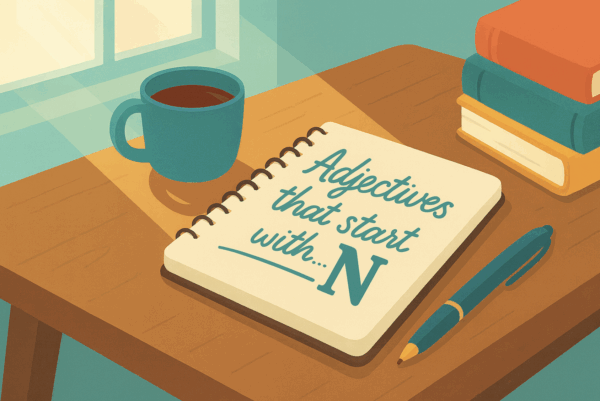If you’ve ever sat down to write and thought, “Who am I kidding? I’m not a real writer!”—congratulations, you’ve officially met imposter syndrome! Welcome to the impostor syndrome club, where fellow writers like Maya Angelou and Neil Gaiman have also made their mark. Yes, even the most successful writers have felt like imposters at some point, and most writers will experience these feelings during their careers. But don’t worry, you can overcome it and keep on writing. Let’s break down how to combat that pesky imposter syndrome and build the confidence you need to thrive in your writing life.
What is Imposter Syndrome? The Root of Writer’s Doubt
Imposter syndrome is that persistent feeling of not being good enough, of being a fraud, despite evidence to the contrary. And when it comes to writers, it hits hard. Many writers feel like they’re not “real” writers, constantly doubting their work and comparing themselves to others. You might finish a first draft of a novel, stare at it, and think, “Well, that was garbage. I’m definitely a fraud.”
Your Publishing Journey Awaits – Start NowFun fact: Maya Angelou once said, that after being published and publishing eleven books, she still thought, “Uh oh, they’re going to find out now. I’ve run a game on everybody.” If Maya Angelou felt like an imposter, it’s safe to say most of us writers will too. But the first step in overcoming imposter syndrome as a writer is realizing that these feelings are normal and that they don’t define your worth or talent.
Self-Doubt: The Inner Critic that Never Shuts Up
Ah, self-doubt—the trusty sidekick of writer imposter syndrome. You know the drill: every time you sit down to write, that little voice in your head whispers, “You’re not good enough.” It critiques every sentence, mocks your writing skills, and convinces you that you’re the worst writer on the planet.
Here’s the thing: the inner critic is relentless, but it’s also part of the process. Every prolific writer has an inner critic, but the trick is not to let it stop you from writing. You can acknowledge its presence without giving it the power to stop you from finishing that first draft. As a professional writer, I once stared at a blank page for so long, I felt like it was mocking me. The key is to embrace the messiness of creative writing—no one gets it perfect on the first try.
Why Imposter Syndrome Affects Writers More Than Other Creatives
Writers often struggle with imposter syndrome more than other creatives because writing is such a solitary act. Unlike visual artists or performers who get immediate feedback, writers spend a lot of time alone with their thoughts. The writing process can be a breeding ground for self-doubt, especially when you’re working on something as personal as a novel or blog post.
On top of that, writers have to deal with negative feedback and rejection, which only amplifies the feeling of being an imposter. You might think, “If I were a real writer, I wouldn’t have been rejected by ten publishers.” But here’s a little secret: most writers get rejected, and it’s not a reflection of your talent.
How to Overcome Imposter Syndrome: 6 Practical Steps for Writers
So, how do you overcome imposter syndrome as a writer? Spoiler alert: there’s no quick fix, but there are plenty of ways to manage it.
1 – Recognize It’s Normal
Imposter syndrome is something even the most seasoned and successful writers experience. That feeling of not being “good enough” is a common part of the creative process. The next time you catch yourself thinking you’re the only one who feels like a fraud, take comfort in knowing that most writers, even those you admire, have felt this way. It’s a sign you’re pushing yourself, which is a part of growth.
Pro Tip: When you feel like a fraud, remind yourself of your achievements by keeping a journal of your writing milestones—whether it’s finishing a chapter, getting positive feedback, or publishing a piece. Revisit these when self-doubt creeps in.
Your Publishing Journey Awaits – Start Now2 – Set Achievable Goals
Instead of putting pressure on yourself to write the next bestseller overnight, break your writing tasks into smaller, more manageable goals. This could mean setting a word count goal for the day or finishing a single chapter in a week. Smaller wins give you a sense of progress and can make the overall goal feel less overwhelming, helping silence that critical inner voice.
Pro Tip: Set daily or weekly goals, and reward yourself when you meet them. This could be something as simple as a coffee break, a walk, or reading a book. The key is to reinforce positive behavior to keep the momentum going.
3 – Join a Writing Community
One of the most effective ways to deal with imposter syndrome is to connect with other writers. Writing can feel isolating, but joining a community, whether online or locally, allows you to share your struggles and realize you’re not alone. Hearing from other writers who experience similar doubts can be incredibly reassuring and can provide valuable feedback and support when you need it most.
Pro Tip: Join writing groups or workshops where constructive criticism is encouraged. Not only will you grow as a writer, but you’ll also gain the confidence that comes from receiving feedback from peers.
4 – Challenge Your Inner Critic
Negative self-talk can be one of the biggest obstacles for writers facing imposter syndrome. When those thoughts creep in, challenge them head-on. Ask yourself if there’s any evidence to support those doubts or if they’re just fears holding you back. Keep a folder of positive feedback or finished pieces you’re proud of. Reviewing this during moments of self-doubt can help you regain perspective.
Pro Tip: Create a “praise folder” where you save any positive feedback, compliments, or moments of personal pride related to your writing. Open it when you need a reminder of your worth as a writer.
5 – Celebrate Small Wins
It’s easy to get caught up in the big picture, but celebrating the small victories along the way is essential to staying motivated and confident. Whether you’ve finished a draft, hit your word count, or simply stuck to your writing routine for the day, take a moment to recognize and appreciate your progress. These small achievements build toward your larger goals.
Pro Tip: Use a visual tracker, like a calendar or progress chart, to mark off each writing goal you complete. Seeing your accomplishments accumulate over time provides a sense of satisfaction and can motivate you to keep going.
6 – Embrace Your Unique Writing Style
Imposter syndrome often thrives on comparison, but every writer brings something unique to the table. Rather than focusing on how your writing stacks up to others, focus on what makes your voice, tone, and perspective distinct. Experiment with genres, techniques, and formats that feel true to you. The more you lean into your individuality, the more confident you’ll become in your writing.
Pro Tip: Read a variety of books, but not to compare—read to find inspiration. Absorb different styles, but focus on what resonates with you. This can help you discover your own voice and refine it in ways that feel authentic.
When Self-Doubt Creeps In, What To Do in the Moment? So, you’re writing, and BAM—self-doubt hits you like a ton of bricks. What do you do? Step away for a bit. Take a walk, get a snack, or even just stretch. Clearing your head can help reset your mindset. Write through the doubt. Sometimes the best way to overcome imposter
Success Despite Self-Doubt: You Can Do It Too!
Feeling like an imposter doesn’t mean you aren’t destined for success. Plenty of successful writers have dealt with their fears and self-doubt and still achieved greatness. The key is persistence—keep showing up, keep writing, and remember that you’re not alone in this struggle.
In the end, imposter syndrome is just a part of the writing life. It doesn’t define you as a writer, and it certainly doesn’t mean you should stop writing. So combat imposter syndrome, go ahead, finish that first draft, start that novel, or hit publish on that blog post. You’ve got this!
To all the writers out there struggling with imposter syndrome: you are not alone. Whether you’re writing your first book or have been writing for years, self-doubt is a universal experience. The key to overcoming imposter syndrome is understanding that it’s part of the process and doesn’t define your worth as a writer.
So, the next time your inner critic tells you you’re not a “real” writer, laugh it off, sit back down at your desk, and keep going. Because you are a writer. And the world needs to hear you.
Your Publishing Journey Awaits – Start Now







